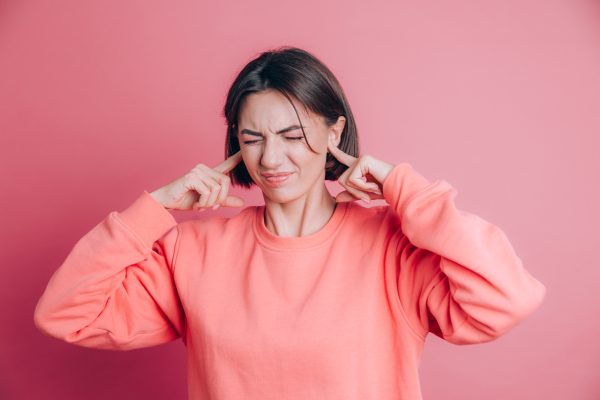
Tinnitus: Finding the Right Course of Treatment for It
There are individuals who often experience a kind of ‘ringing’ in the ears. When this occurs without the presence of any external source, it means you have tinnitus. If you are wondering about tinnitus’s meaning, this blog is for you!
Tinnitus can be present in one or both ear(s), and the volume, intensity, and type of sound can vary significantly from person to person. Most individuals experience a constant high-pitched tone, while others may hear fluctuating sounds, such as whistling, whooshing or beeping.
Tinnitus is extremely common, with a study showing that about 78% of the participants have experienced it at least once in their lives (1). Tinnitus usually lasts for a short period of time, from minutes to days. However, for some individuals, tinnitus can be more persistent and/ or severe, significantly affecting everyday life, this is termed “bothersome tinnitus”. The continuous ringing in the ears might be loud and/or constant, making it difficult to focus on the usual daily routines such as sleep. Needless to say, this can drain you mentally and emotionally.
Types/ Causes of Experiencing Tinnitus
There are two categories of tinnitus: subjective and objective.
Subjective tinnitus is the more common type, where only the individual experiencing it is able to hear the sound. There are several potential causes, many of which are related to dysfunction or damage to the auditory system. However, the exact cause can sometimes be difficult to pinpoint.
Two of the more frequent cases of subjective tinnitus are presbycusis (age-related hearing loss) and noise-induced hearing loss. Both involve damage to the sensory cells in our inner ears, which will result in hearing loss and, in some cases, tinnitus as well. Other conditions that result in this tinnitus symptom include ear infections, trauma, medications (ototoxic drug), Meniere’s Disease, neurological issues, or even stress and anxiety.
Objective tinnitus is a rarer type of tinnitus which is often caused by physical issues such as blood vessel problems or muscle spasms in the ear. This type of tinnitus might be heard by not just the person experiencing the sound. Doctors can hear it through special instruments as well at times. Such tinnitus can be treated once the underlying issue is resolved.
When Do You See a Doctor?
The following are some of the tinnitus causes:
Bothersome Tinnitus
Most tinnitus can resolve on its own after a few days. However, if your tinnitus persistently occurs for more than a few days and is affecting your daily routine, such as your ability to sleep and concentrate, you might want to seek help to manage the condition.
Accompanied by Hearing Loss
If you notice that you require others to repeat or you struggle to understand speech, the tinnitus could be related to an underlying condition such as presbycusis, noise-induced hearing loss, or ear infection that requires attention.
Accompanied by Other Symptoms
If you experience a ringing sound in your ears alongside other symptoms such as dizziness, vertigo, imbalance, or sudden hearing loss, it could be an indication of a medical condition such as Meniere’s Disease or vestibular disorder, which requires medical attention.
Pulsatile Tinnitus
This refers to the sound of the tinnitus that syncs with your heartbeat. This type of tinnitus usually indicates vascular issues and requires evaluation by a medical practitioner.
Ototoxic Medication
Certain types of medications can affect your hearing or cause tinnitus as a side effect. Examples of some ototoxic medications include certain types of antibiotics, aspirin in high doses, and chemotherapy drugs. Do have them checked out by your medical provider to make appropriate adjustments to your tinnitus treatment.
What Are Some Management Techniques for Tinnitus?
Wondering how to cure tinnitus? Objective tinnitus can usually be treated once the underlying conditions are resolved. While most subjective tinnitus cannot be cured, it can, however, be managed to reduce its impact on daily life. Studies and ongoing research have suggested various tinnitus treatment methods that can help to cope with bothersome tinnitus. It can be very overwhelming when there is no immediate cure, and the more anxious you feel about it, the greater the tendency for the tinnitus to persist or even become more severe and intense. Therefore, it is crucial to seek help from an ENT doctor and audiologist to guide you through the process. Some of the management methods include:
Hearing Aids
Multiple studies have shown that those with tinnitus have a significantly higher degree of hearing loss (2). Thus, with the help of hearing aids, there will be an improvement in speech understanding and, therefore, improved communication with others. They can also improve environmental sounds, reducing the prominence of the ringing in the ears. Hearing aids have a function known as “maskers” that can be programmed to constantly play white noise or relaxation noise of your choice such as beach waves that could also reduce the prominence of your tinnitus.
Cognitive Behavioral Therapy (CBT)
This helps individuals to change their perception of their tinnitus through mindfulness.
Hence, it reduces emotional distress and effectively improves coping mechanisms.
Medications
While there is no specific medication for an immediate cure for a buzzing sound in ears, there are medications that can help with the tinnitus symptoms you might be going through. For example, if the tinnitus is affecting your sleep and causing your anxiety, the more anxious you feel, the more intense the tinnitus gets, and the cycle repeats. Thus, anti-anxiety or sleeping pills might be helpful.
Lifestyle and Relaxation Techniques
Stress management can reduce the intensity of the tinnitus. Some studies have also shown that dietary changes such as less caffeine, alcohol, or salty food may help manage symptoms.
Conclusion
Tinnitus can be annoying and often gets in the way of leading a normal life. Instead of sitting on the matter, consider visiting our clinic and seeking a professional’s help. Keep an eye out for the first symptom, as delaying can make the matter worse. So, fret not; we are here to help you and offer you a sound solution!
Find out more on our blog!


Leave a reply